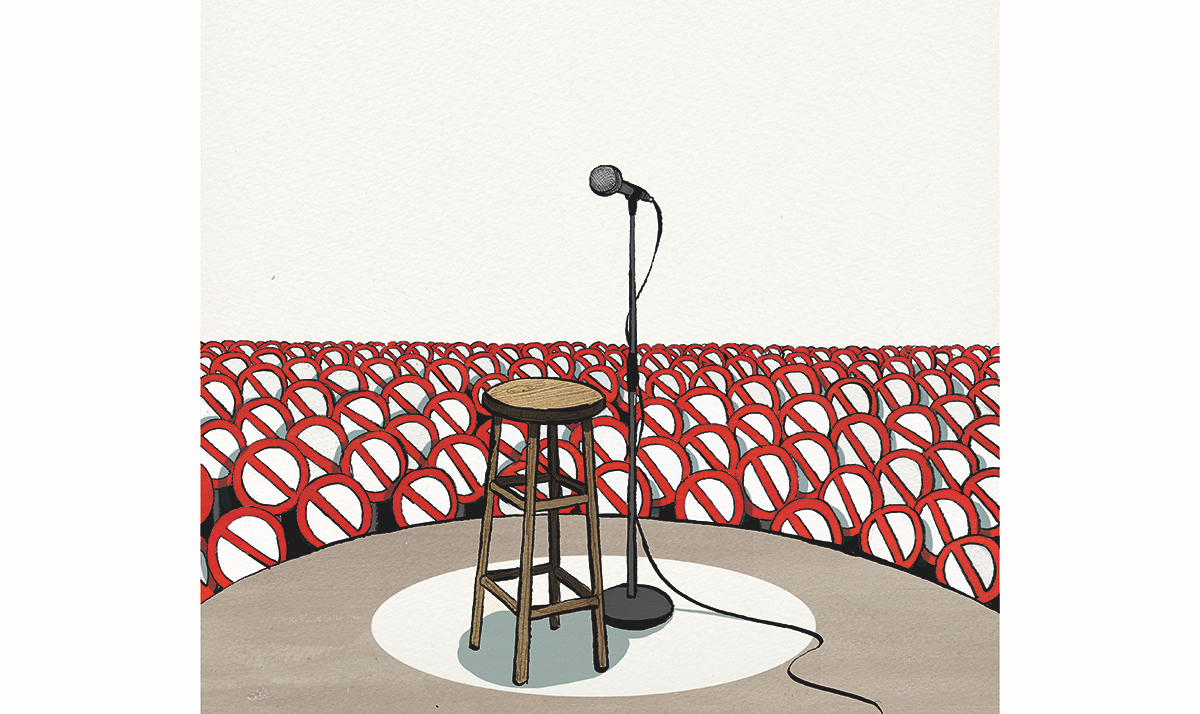‘It’s like the Olympics of performing’ says Los Angeles-based comedian Greta Titelman on the Fringe’s reputation over the pond. ‘It’s a big honour – but you will likely have a mental breakdown at some point during your run.’
Like over 350 US-based acts this year, Greta has opted to spend August in Scotland’s capital at the largest arts festival in the world. With just over 3,500 shows in total at this year’s Fringe, Americans are well over-represented. But appeals to them about the Fringe?
‘My show is about sex, and luckily, you people have sex too’
‘I have been working on my hour for years and I feel finally mentally and emotionally prepared to absolutely stun the masses of Edinburgh’ says Greta. ‘Of course I want massive things to come from this for my career but I am most looking forward to immersing myself in a community of other extremely talented people.’ And there’s nowhere better than Edinburgh, as the 76th Fringe Festival will see artists from 72 countries do over 52,000 performances by the month’s end.
‘It has always been a goal of mine to bring a show to the Fringe’ says Canadian comedian Laura Ramoso who has already sold out her run with a show based on her popular online characters. She explains: ‘This year in particular, I finally felt ready after having workshopped and toured my new show over the course of many months. I am also at a point in my career where I’m not tied down to one place, so there was really nothing holding me back from coming out here for a month.’
Creative freedom is one thing, but economic factors are at play too. Chloe Radcliffe is a writer and stand-up based in New York City who is taking her shows about relationships (mostly cheating) to the Fringe. She wanted to work on a project that was more under her control rather than leaving her career to the whims of the American entertainment industry, so thought working on her solo show would be ideal. A reason she chose Edinburgh this year though was due to a particularly strong dollar against the pound, ‘so I’m only losing 30 per cent of what I’m spending, not 40 per cent’ she jokes.
‘The hardest thing is the cost and how to get people to know about your show with very little money’ says Tim Murray who is doing a show that is part traditional stand-up, part musical comedy, and part improv. He continues: ‘But nothing in life is worth doing if you’re not risking something. I just happen to be risking my life savings.’
Do any of these Americans worry about the difference between US and UK audiences? Chloe has been warned by Americans that British audiences are far more stoic, proper, and ‘not as into guns as American audiences are’. But she’s tested her show at the Brighton Fringe before heading north and concluded: ‘British audiences are still just people. There are hot crowds and tight crowds everywhere, and your culture appreciates comedy on a truly higher level than most places in the States. My show is about sex, and luckily, you people have sex too.’
The main difference Tim found is that British audiences can be far more subdued. ‘At my preview in London, I come out in full wicked witch of the west drag with an elaborate costume and grand entrance music. Every show I have done in the States the audiences lost their minds with applause. Here my entrance got nothing. Brits make us work harder.’
For Chloe Radcliffe, the moment that encapsulated the cultural differences between the two countries came during a sound check. ‘Someone asked what colour tape I had been assigned for marking my mic stand. I had already seen the colour, so I excitedly called out, “silver” and my tech called over at the same time, “grey”. I can think of nothing that more perfectly exemplifies American optimism against British… realism, shall we say.’






Comments